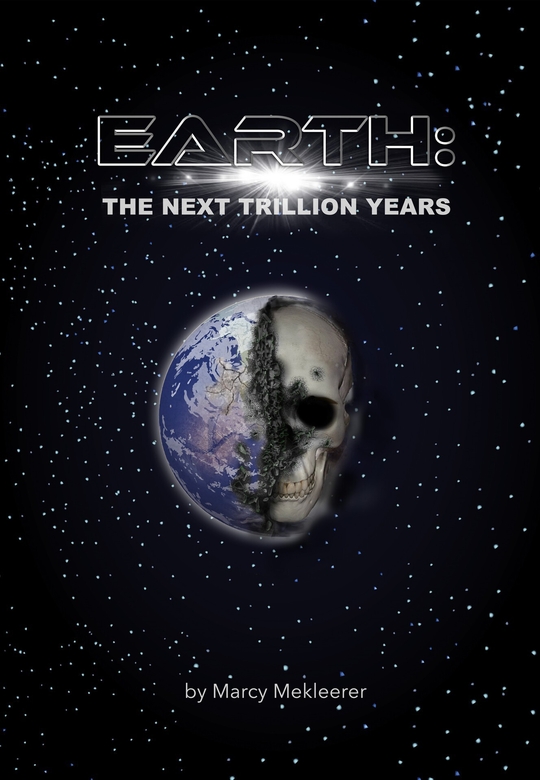
A philosophical and narrative exploration of everything from computer science and genetic mutation to sentience and morality, Earth: The Next Trillion Years by Marcy Mekleerer is an ambitious, thought-provoking, and eye-opening work of visionary science fiction.
Near the end of the 21st century, an alien life form from Alpha Centauri lands in the Brazilian jungle and begins its deadly spread – mindlessly consuming everything in its path as the world numbly watches. Dr. Kacela, the first on the scene of this extraterrestrial invasion, must set her formidable skills in biomolecular and genetic engineering to the test, even as humanity begins to divide itself over this potentially world-ending crisis.
The premise of the plot – the imminent extinction of humankind by an unprecedented and inconceivable force – has clear parallels to our planet in the 21st century, as our species stares down the barrel of climate collapse and potential mass extinction. Probing both our primitive human origins and our far-flung potential as a scientifically advanced species, this novel cleverly presents relevant questions for us all: Should we do something just because we can, or are we doomed to create the conditions of our own destruction?
The near-future setting of the story is immediately engaging, as readers can see a prophetic glimpse of a future not so far removed from us, and examine how some of today’s issues have been solved, worsened, or avoided entirely. Mekleerer addresses everything from gender non-conformity and international cooperation in scientific fields to habitat destruction, ethical reason, and geopolitical instability, while also injecting a sense of renewed wonder in certain fundamental aspects of existence – coffee, sex, sleep, joy, mobility, free will, and more. Despite the obvious allegorical connections to our present day, Mekleerer still manages to avoid clumsy messaging or preaching about the end of the current world.
The narrative explanations at the start of this book set a tone for originality and inventiveness that continues throughout the prose. Perennial concepts that have been mulled over for generations are manipulated and explained through unique metaphors and accessible comparisons, demonstrating the erudition of the author, and the flexible skill of her pen. More notably, Mekleerer is imagining where some of these disciplines will be 60 years in the future, and she does an admirable job of maintaining a steady and engaging vision. At times, a passage may read like a textbook, but these dense sections are typically brief, and add to the immersive atmosphere of this imaginative story.
While the plot is undeniably fascinating, the writing itself falls short, as though the author was more invested in the concept than its execution. Intense emotional exchanges or shocking events are often depicted in declarative ways, like a news reporter reading a script, rather than giving readers visceral descriptions or authorial sensitivity. A woman being mercilessly executed, a once-in-a-millennium discovery, or a shocking personal revelation are all described with the same enthusiasm as the inner workings of a repair drone. While this cold and impersonal style reflects the calculating impartiality of AI and the Unnameable, it can make it harder for readers to emotionally invest.
Still, the book is engrossing for its breadth of knowledge and the questions it asks – and even answers. The amount of research (or broad-spectrum knowledge) behind this book is impressive, given that it touches on a sprawling range of subject matter in numerous biological, sociological, and astronomical disciplines. So despite some stumbles in delivery, the intellectual depth in this novel is remarkable, and wholly rewarding.
Book Links
STAR RATING
Design
Content
Editing
Get an Editorial Review | Get Amazon Sales & Reviews | Get Edited | Get Beta Readers | Enter the SPR Book Awards | Other Marketing Services























Leave A Comment